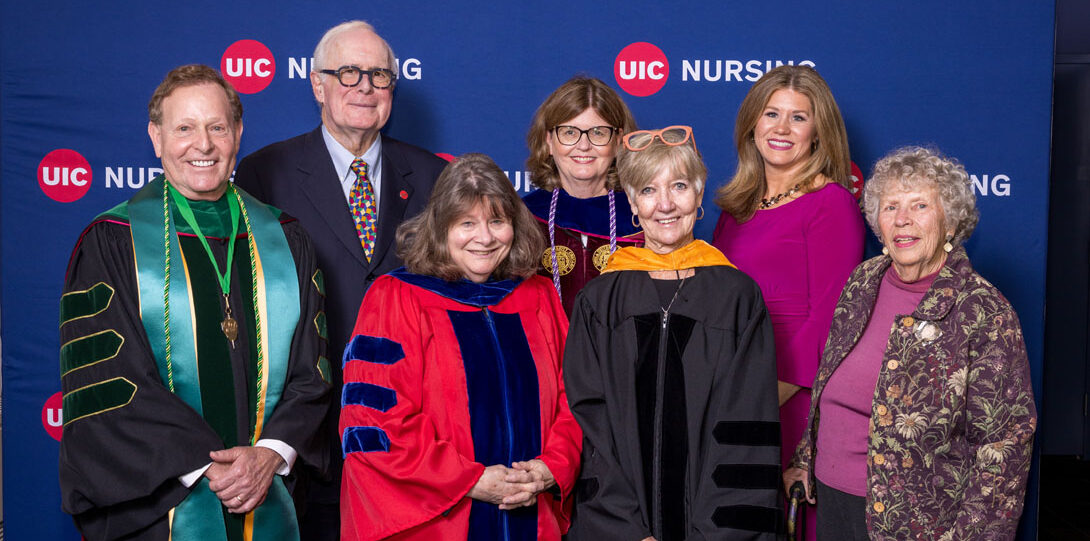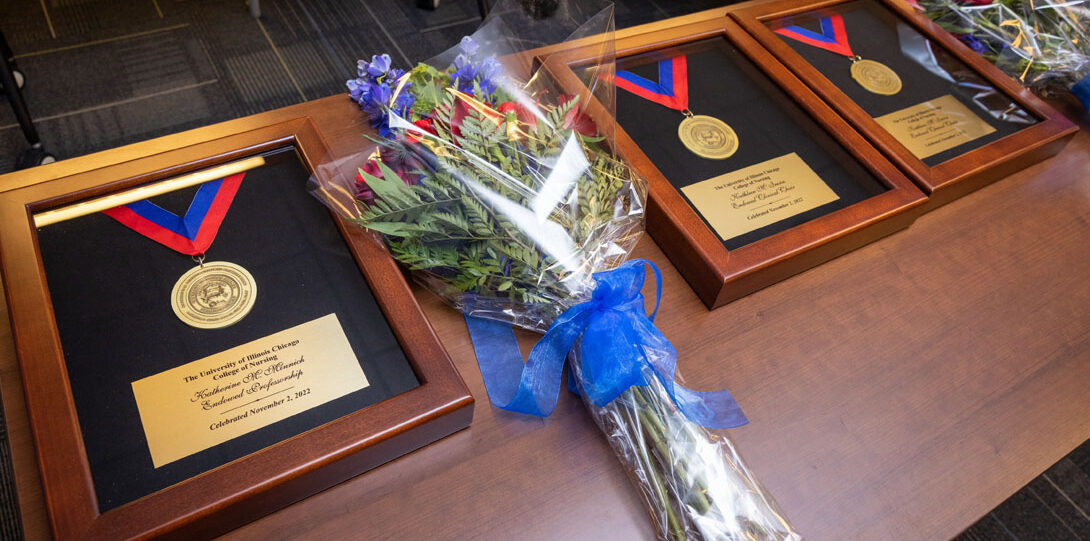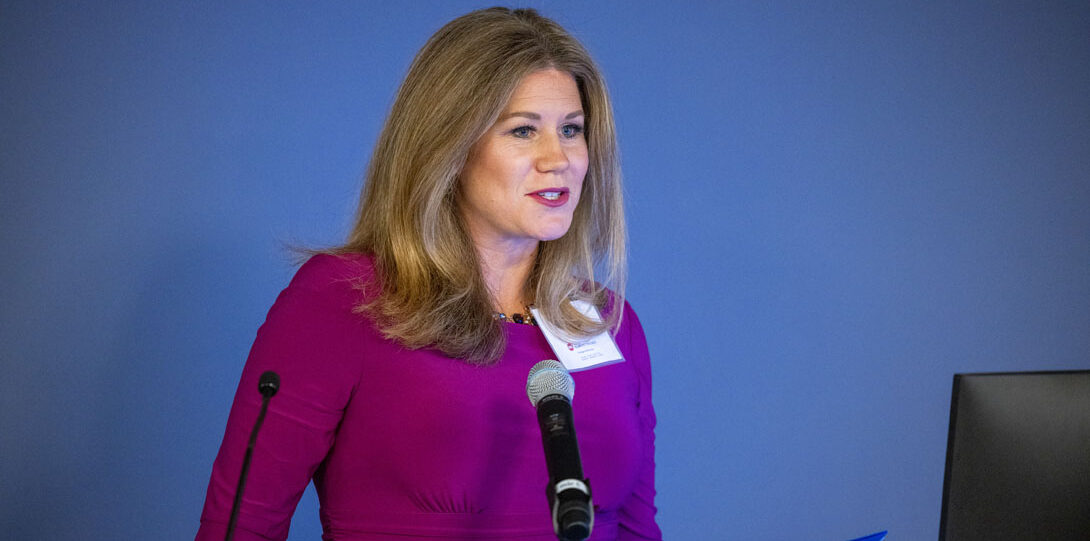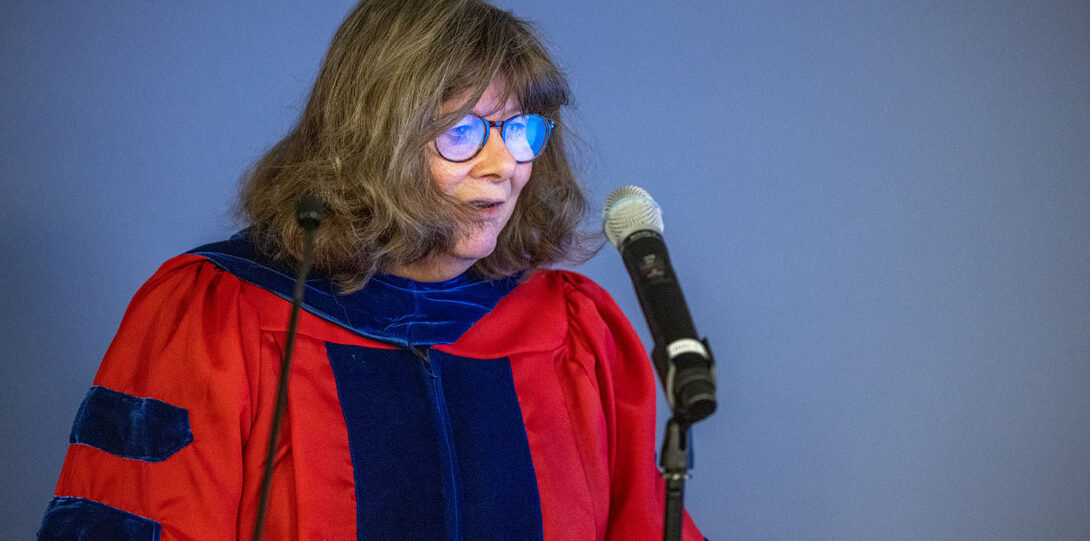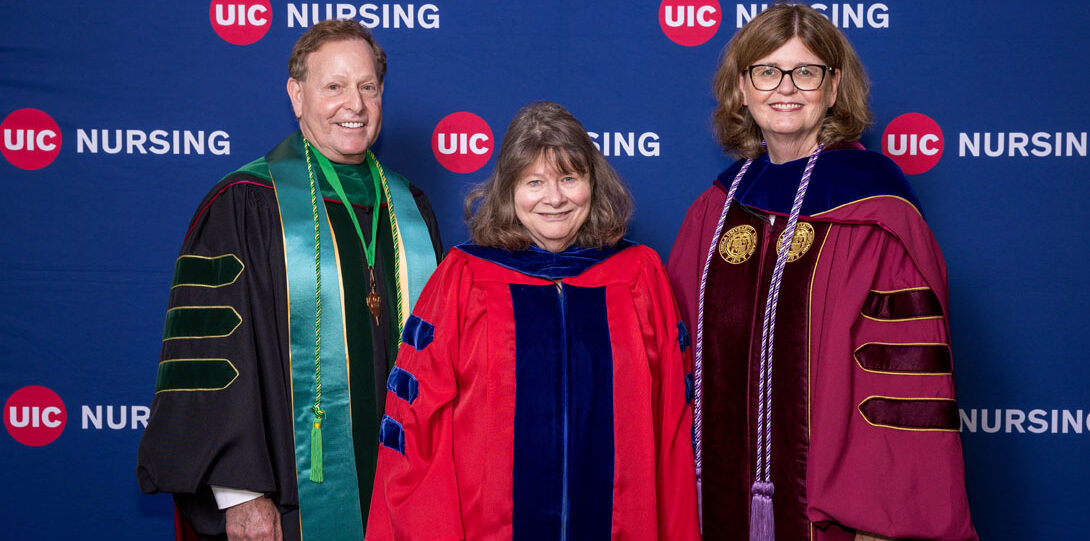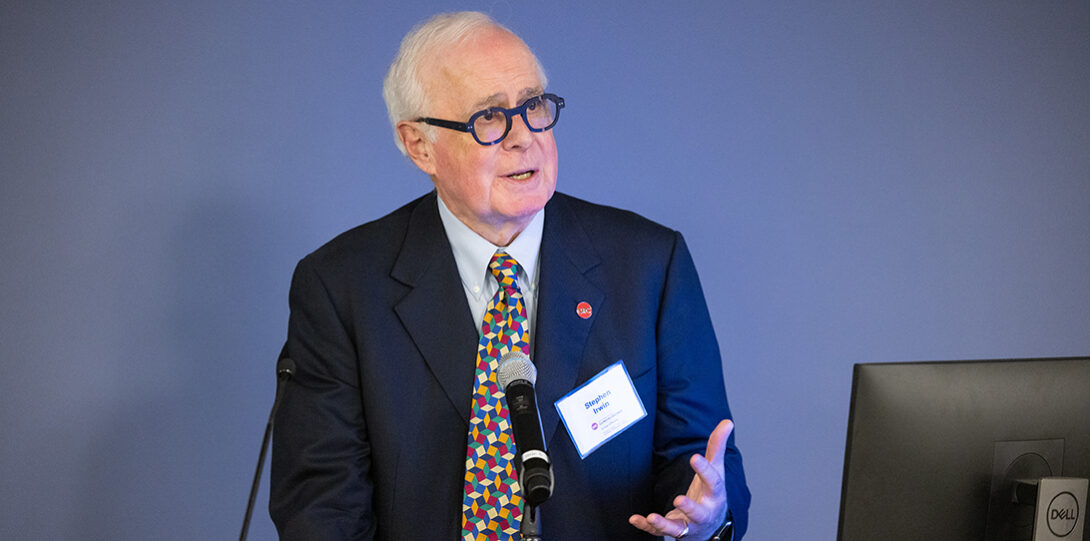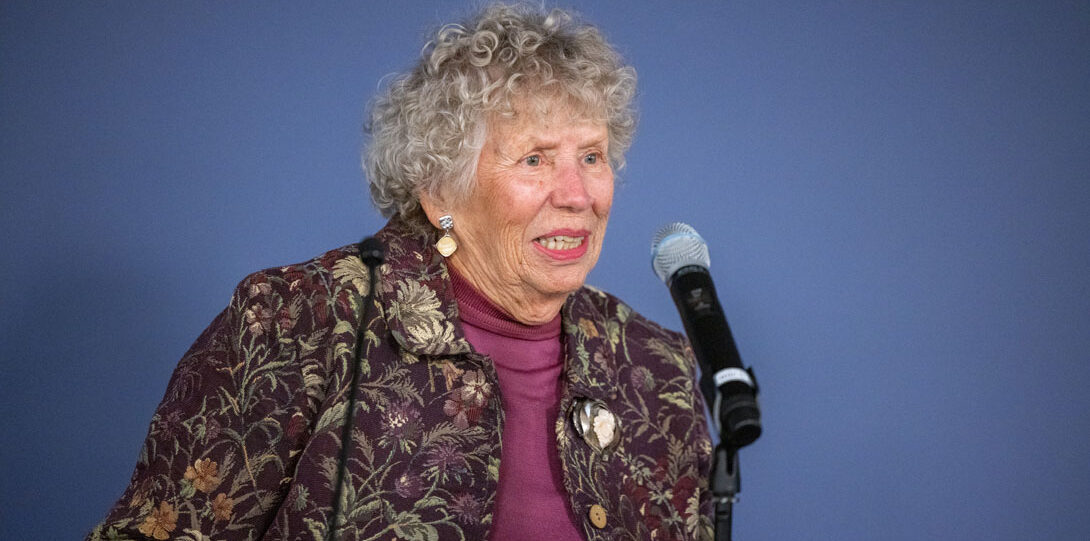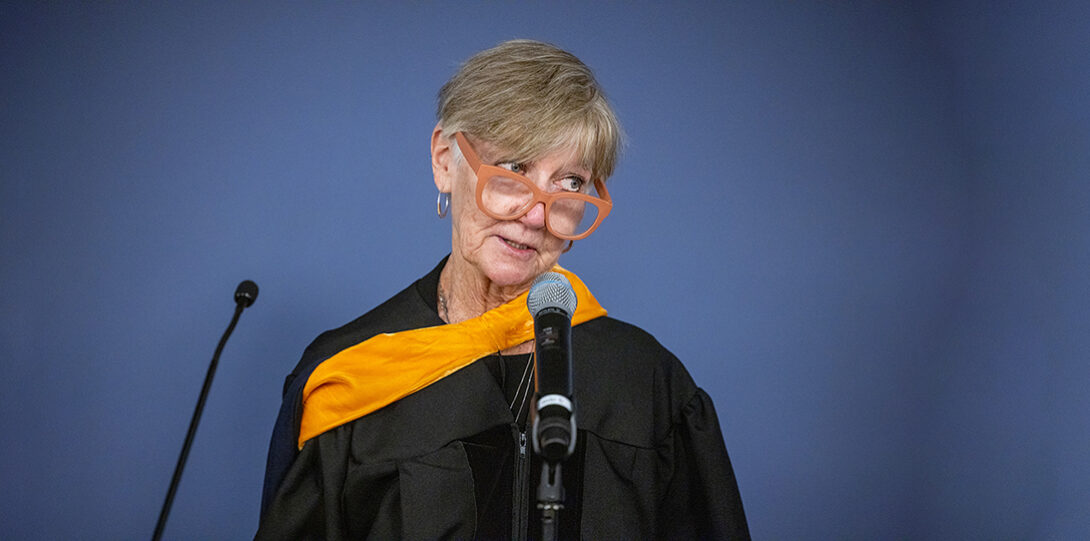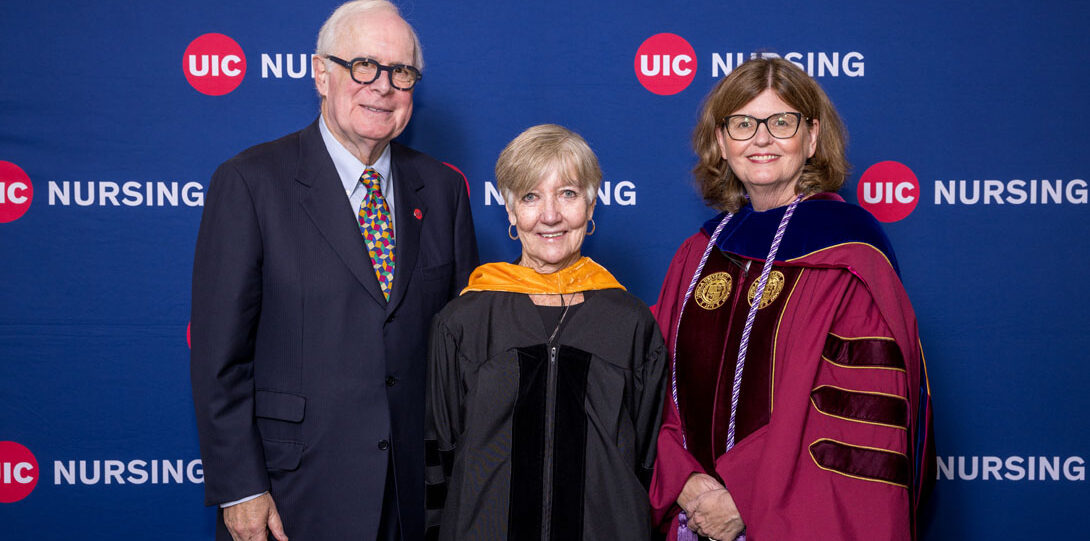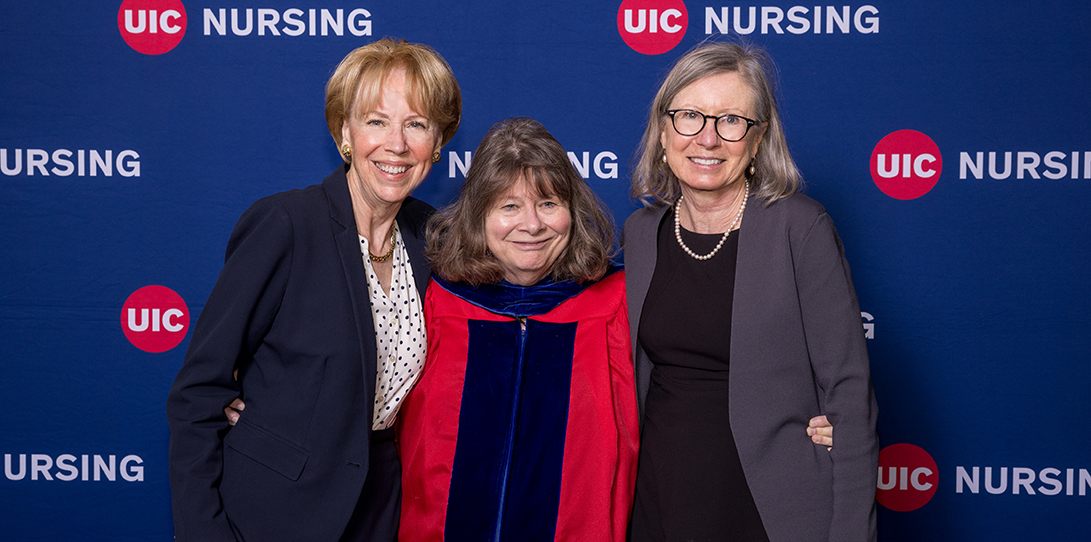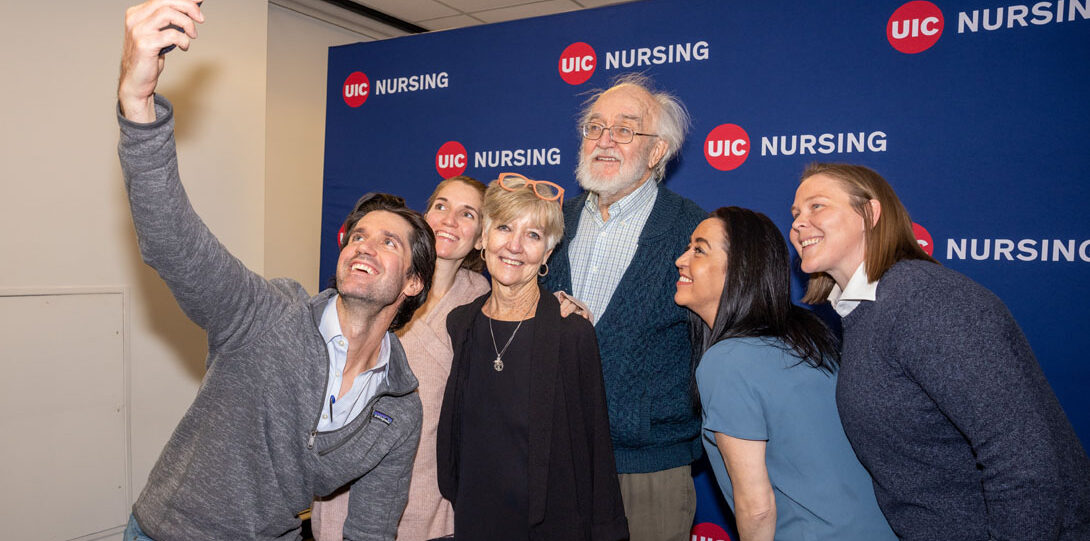Gorman, Quinn honored at 2022 investiture
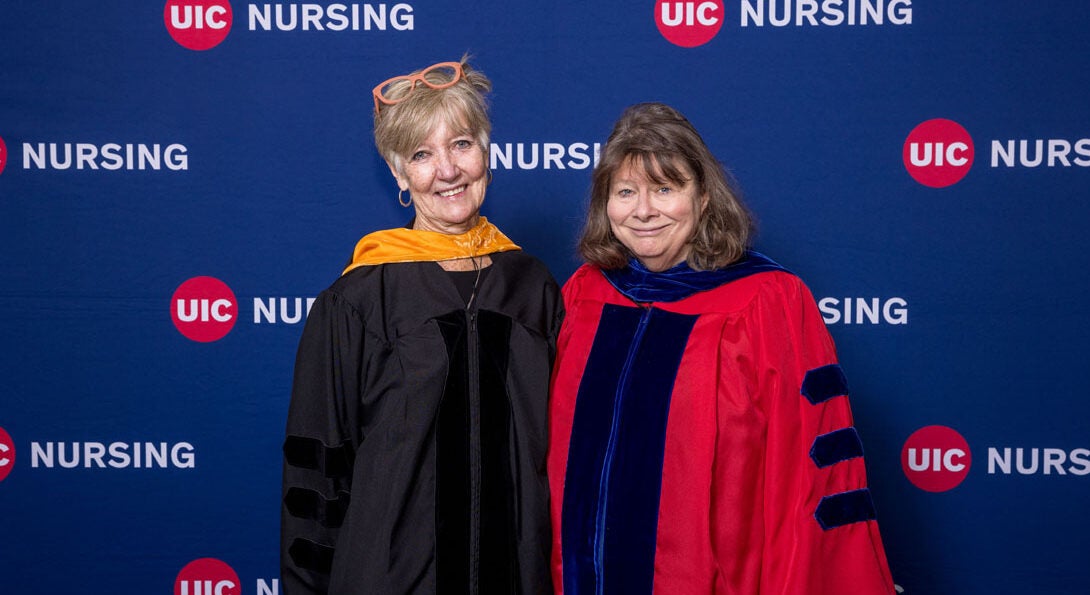
Family, friends and colleagues joined both 2022 honorees during Nov. 2 ceremony
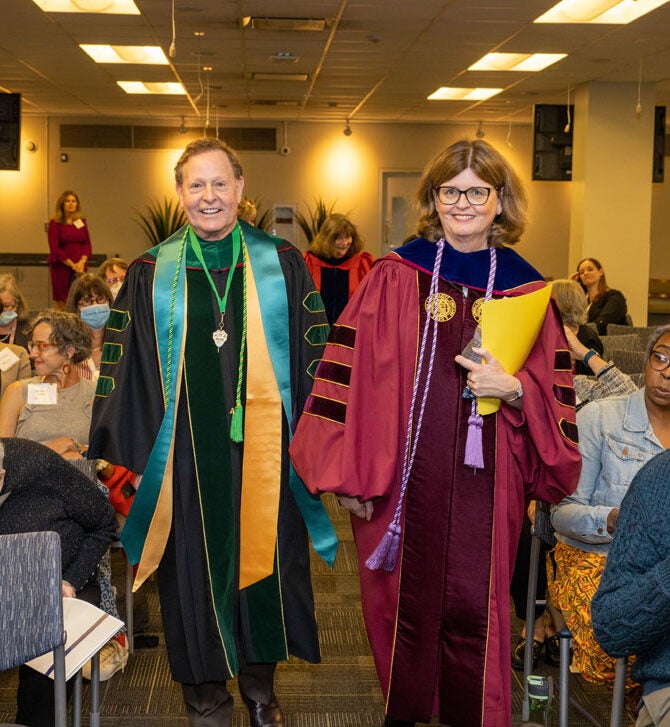
Two faculty members – one, a clinician and social justice warrior; the other, an internationally acclaimed researcher – were invested into endowed positions at a ceremony at the UIC College of Nursing in Chicago on Wednesday, Nov. 2.
Geraldine Gorman, PhD, RN, was formally installed as the inaugural Kathleen M. Irwin Endowed Clinical Chair Professor in Outstanding Nursing Practice. Lauretta Quinn, PhD ’96, RN, FAAN, FAHA, CDE, was installed as the second ever Katherine M. Minnich Endowed Professor.
“It is not coincidental that both Gerry and Laurie are adored by students and respected by colleagues,” said UIC Nursing Dean Eileen Collins, PhD, RN, FAAN, ATSF, at the investiture celebration. “In honoring them, we laud the universe of nurse educators whose approach to teaching expands their students’ view of nursing, causing a ripple effect that elevates the public perception of the profession.”
Gerry Gorman: Carrying on a legacy
Gorman has been a clinical faculty member at UIC Nursing since 2002 and has maintained a practice in hospice and palliative care since that time.
The Irwin chair was established last year with a gift from G. Steven Irwin, MD, in accordance with the wishes of his late wife, Kathleen, a nurse, to support an outstanding clinical faculty member who is active in nursing practice. It is believed to be one of the nation’s few endowed positions at a research university for nursing faculty who are engaged in clinical practice.
Irwin, who spoke at the investiture, said the strength of any college lies with its faculty, and, “it is through endowed, named chairs that you empower them, give them prestige, retain them, and attract future faculty,” he said.
“Dr. Gorman has longstanding teaching experience here with the university, and I know she’ll carry on Kathy’s legacy,” Irwin said. “I welcome Gerry, and I know Kathy would be very proud of her selection for this position.”
Gorman, who began her career as a student of English literature, continues to imbue her practice and teaching with the arts and humanities. Gorman’s friend and mentor, Mary Ann McDermott, professor emerita at the Marcella Niehoff School of Nursing at Loyola University Chicago, called her “always a bit of a rebel,” citing Gorman’s editorials on social justice issues and her non-traditional clinical placements for students, at sites such as the Cook County Jail.
Robert Barish, UIC’s vice chancellor for health affairs, who spoke at the investiture, noted the impact Gorman has had on her students.
“Countless prelicensure nursing students invoke Dr. Gorman as the first instructor to make them feel deep in their hearts how much more nursing is than a job,” he said.
Laurie Quinn: Improving people’s quality of life
As Minnich Professor, Quinn leads the Center for Sleep and Health Research at the UIC College of Nursing.
Katherine Minnich developed narcolepsy as a young woman in the 1930s and dedicated herself to pursuing knowledge about the condition, which was relatively unknown at the time. This led her to make a gift to UIC Nursing to promote sleep research.
Quinn is a nurse researcher whose life’s work is focused on improving the health of people with diabetes and reducing the burden of diabetes complications. This year, she was inducted into the Sigma International Nurse Researcher Hall of Fame.
Since 2006, she has partnered with researchers at IIT on the development of an “artificial pancreas,” technology to create an insulin pump system that no longer needs manual input from patients. Her current studies include those that look at the intersection of diabetes and sleep.
“Her entire body of research—and even her personal choices—strive to improve quality of life for millions of real people living with chronic illness,” Barish said.
Quinn was thesis and dissertation advisor to Denise Kent, PhD ’11, and has served as her mentor for 20 years. At the investiture, Kent recalled Quinn’s effect on her own career – as well as that of other students.
“Dr. Quinn had an incredible way of breaking down complex material into digestible forms that had application in clinical practice,” she said. “In her lectures, she also embedded her research work, and invited students to reach out if interested in discussing role of nurse researcher.”
